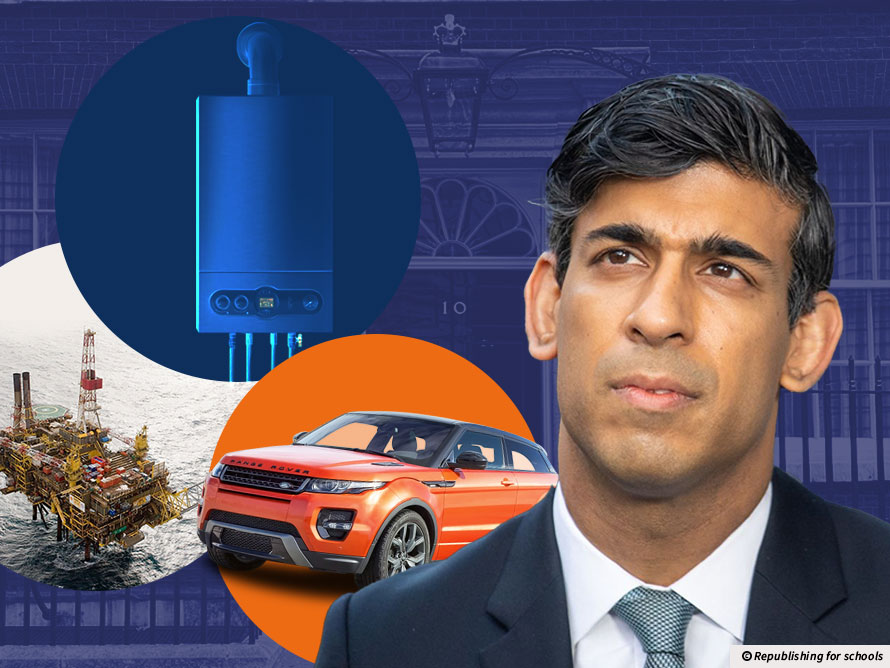Are we all to blame? Rishi Sunak has hailed in the weekend with announcements of a U-turn on fulfilling the UK’s net-zero goals. But is public opinion responsible for the government’s “war on the climate?”
UK slammed for U-turns on net-zero pledges
 Anti-climactic: Some have claimed that Sunak’s climate U-turns could be the “greatest mistake of his premiership".
Anti-climactic: Some have claimed that Sunak’s climate U-turns could be the “greatest mistake of his premiership". Glossary
Mediterranean - A sea connected to the Atlantic Ocean. It has the shores of Europe on one and the shores of north Africa on the other, as well as shoreline in Asia.
Emissions - Things that are released, such as gases, as part of a process. E.g. greenhouse gases.
Spate - A series of things in quick succession.
Net zero - When the gases going into the atmosphere are balanced by those being taken out of it.
Renewables - Energy sources that do not use up non-renewable fossil fuels, such as wind and solar power.
